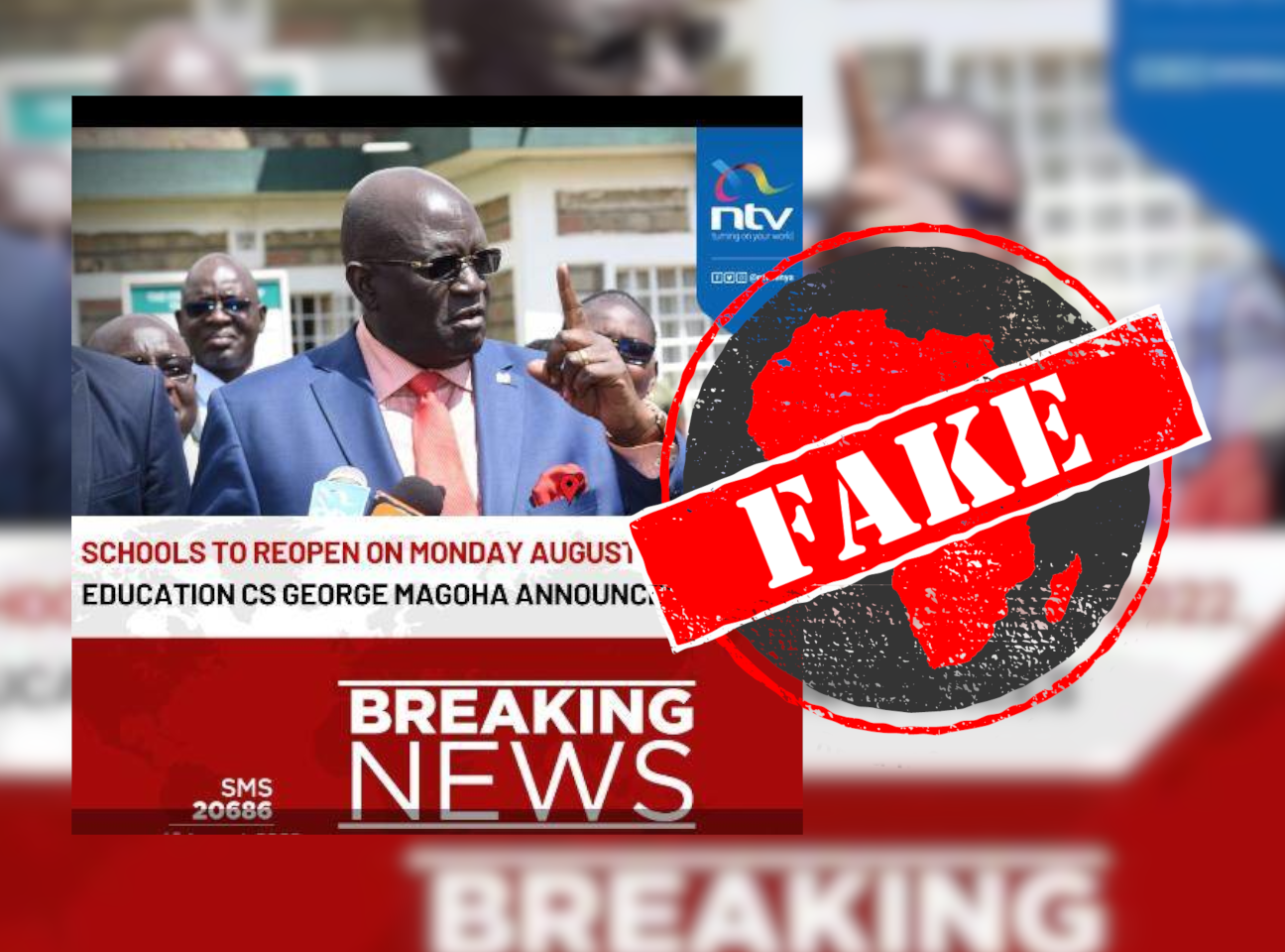A graphic shared on Facebook claims Kenya’s cabinet secretary for education, Prof George Magoha, has again delayed school reopening dates because of elections.
The quote, under a photo of Magoha, reads: “Schools to reopen on Monday August 22, 2022, Education CS George Magoha announces.”
On 1 August Magoha ordered all basic education institutions be closed for a week ahead of the 9 August elections. Teaching would resume on 11 August, he said.
Schools are often used as voting and tallying centres, with 23,000 used during the recent election. The safety of students during voting is also a consideration.
Magoha on 10 August said schools would reopen on 15 August, saying votes were still being tallied.
On 13 August the minister again pushed back the reopening date, to 18 August.
On 16 August, the Independent Electoral and Boundaries Commission (IEBC) declared deputy president William Ruto as winner of the presidential election.
Former prime minister Raila Odinga, who came a close second, is challenging the result in court.
On 16 August, Magoha said schools would not be closed again due to elections, even as school heads called for a definitive way forward.
The graphic , also shared here, bears the logo of local broadcaster NTV Kenya.
But did NTV report this?

Ignore ‘fake’ graphic
NTV Kenya, through its official Twitter account, dismissed the graphic.
“FAKE NEWS ALERT: The image circulating online, of an alleged Breaking News update on school reopening, purportedly from NTV, is not from us. Stand advised,” the station tweeted.
Kenya’s education ministry also announced the reports were false, on Facebook.
Republish our content for free
For publishers: what to do if your post is rated false
A fact-checker has rated your Facebook or Instagram post as “false”, “altered”, “partly false” or “missing context”. This could have serious consequences. What do you do?
Click on our guide for the steps you should follow.
Publishers guideAfrica Check teams up with Facebook
Africa Check is a partner in Meta's third-party fact-checking programme to help stop the spread of false information on social media.
The content we rate as “false” will be downgraded on Facebook and Instagram. This means fewer people will see it.
You can also help identify false information on Facebook. This guide explains how.





Add new comment